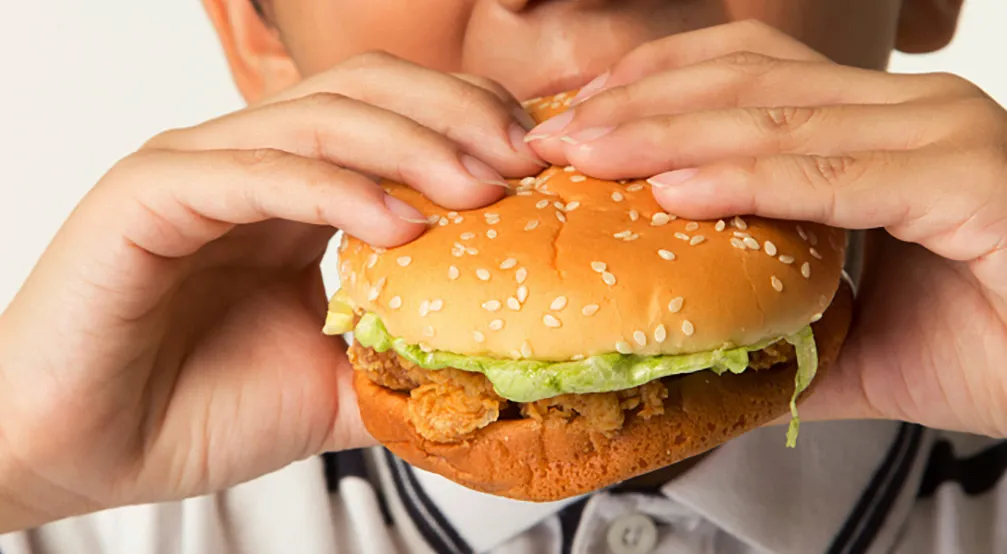At the launch of his children’s fund, president Nelson Mandela stated that “there can be no keener revelation of a society’s soul than the way in which it treats its children”. But unfortunately, an appeal to moral leadership seems to hold little sway today. Even the Constitutional obligation that every child has “the right to basic nutrition, shelter, basic health services and social services” is treated with resignation, although they are meant to have all those rights today. Section 28 of the Bill of Rights, which seeks to protect and nurture children, is not subject to progressive realisation.
Others wish to divert attention away from the obligations of government, pointing to parents who give their children empty calories, as if the half of South Africans living below the minimum subsistence line keep hustling the snack section at Woolies. These detractors seem oblivious to the fact that a packet of Nik-Naks and a bottle of sticky cola take the edge off hunger and give the sugar boost that chronically underpowered people crave.
Food prices shape food choices — and unfortunately, protein-rich foods are mostly out of range.
It seems that the moral arguments for feeding our children are either ignored or counter-moralised. So I don’t think we have a choice but to make child hunger about money — about business and the economic future of this country, even though we know that the benefits of good nutrition extend to good health, social development and national security.
If children can’t grow well, the economy can’t grow well. It’s as basic as that.
 Rates of obesity are fast increasing because they are symptoms with the same root cause, namely chronic malnutrition - starting in pregnancy - and insufficient access to healthy foods. (Photo: achhealthenews.com / Wikipedia)
Rates of obesity are fast increasing because they are symptoms with the same root cause, namely chronic malnutrition - starting in pregnancy - and insufficient access to healthy foods. (Photo: achhealthenews.com / Wikipedia)
Let’s unpack this bland, but foundational statement:
Poor physical growth and brain development mean that children can’t learn well at school, leading to high rates of dropout and lower pass rates. In turn, this leads to scarce skills, high unemployment and ultimately low productivity growth.
In real terms, the South African economy has grown by only 0.7% per year since 1994. The growth rate in the rest of sub-Saharan Africa has been double that, while South and East Asia have grown by over 4% per year.
Most of the gains of the other regions are due to successful investment in human capital.
In OECD countries, greater market efficiencies and innovation are the major drivers of economic growth, after adjusting for differences in the inputs of capital and labour. But in developing countries, according to the World Bank (read: Productivity growth: Patterns and Determinants across the World), education is by far the biggest determinant, accounting for half of the differences between countries’ growth rates.
Only 8.2% of South Africa’s population aged 25 years and older has a bachelor’s degree or equivalent, half the comparable proportion of Brazil, Mexico or Portugal (Education Statistics (EdStats)). As a result, the apex of South Africa’s labour skills pyramid is small: according to StatsSA only 25% of the active labour force is highly skilled. This means that there is little impetus for sustained growth of the knowledge economy.
But it is the ace-of-spades shape of the skills pyramid that is puzzling, with only 30% of the active labour force being low-skilled — until you realise that a third of the labour market is missing; the unemployed.
This means we’re failing to educate our children enough for them to get the most basic jobs in the formal economy (and somehow not even creating the space or motivation for a thriving informal economy). According to a 2023 report by the high-level Reading Panel (available here) over four-fifths of Grade 4 children cannot read for meaning and, according to the Zero Drop Out Campaign, about 40% of learners drop out of school before completing Grade 12.
A good education system needs teachers who can teach and learners who can learn. The quality of teaching is a major concern in South Africa, but this article focuses on factors affecting the ability to learn. Those factors are simple, but profound: Love, care, brain stimulation, physical exercise and food.
Of these — and outside of severe emotional or physical abuse — nutrition is the most primal and powerful shaper of adult productivity. A multi-country review of longitudinal studies of child development into adulthood found that height at two years of age is the best predictor of adult human capital.
 President Nelson Mandela stated that “there can be no keener revelation of a society’s soul than the way in which it treats its children”. (Photo: Christopher Furlong / Getty Images)
President Nelson Mandela stated that “there can be no keener revelation of a society’s soul than the way in which it treats its children”. (Photo: Christopher Furlong / Getty Images)
Economic development needs brain development, and brain development needs food
There have been numerous studies that validate the obvious: economic development needs brain development, and brain development needs food.
For example, a recent study in India (Are early childhood stunting and catch-up growth associated with school age cognition?—Evidence from an Indian birth cohort) showed that nine-year-olds who were stunted (short-for-age) at 2, 5 and 9 years had significantly lower verbal and total intelligence quotient (IQ) scores (minus 4.6 points) compared to those who were never stunted. Given that two-thirds of people score in a narrow band between 85 and 115, a 4.6-point loss of IQ is substantial.
For the statistically minded, that’s one-third of a standard deviation — enough to seriously damage long-term economic prospects if a large proportion of the population is stunted.
In a normal population growth curve, about one in forty children will fall in the lower statistical tail for height for age (below -2 standard deviations). South Africa’s last national household survey which included growth measurement was in 2016. It found that one in four of our children under five fell into that lower statistical tail. That’s ten times as many as are expected to be there!
These stunting rates, together with highly correlated poor performance in international studies of literacy and mathematics, place South Africa in 88th spot out of 130 countries ranked in the World Bank’s Human Capital Index. Worse, we are at the bottom of the pile compared to countries of similar per capita GDP, adjusted for purchasing power parity.
To repeat, if children can’t grow well, the economy can’t grow well.
Read more in Daily Maverick: How a child’s body responds to hunger — and the lifelong consequences of malnutrition
Food poverty line
It is to our collective benefit to ensure that every child in South Africa gets enough food, which means at least ensuring a family income of R710 per person per month. That’s the food poverty line for 2022, which I have adjusted upwards by CPI while we await the release of the official figure for 2023.
This ‘line’ is the monthly cost of the minimum energy requirement of 2,100 kilocalories per day and excludes the transport costs needed to buy it or the energy costs needed to cook it, let alone other necessities.
It also excludes the minimum requirements for protein (about 0.8 g/kg/day) and for micronutrients.
Read: Protein intake from 0 to 18 years of age and its relation to health: a systematic literature review for the 5th Nordic Nutrition Recommendations
Still, it’s a reasonable ballpark, recognising that younger children need less energy and older children more. It tallies with the price of the Grow Great basket of 10 best-buy foods, which aims to optimise dietary intake within the straitjacket of household poverty.
The child support grant was increased to R500 on 1 April 2023 and will go up to R510 per month from October. It falls 30% short of the Food Poverty Line and is only half of the income needed to cover basic subsistence needs.
It has been argued that the CSG was never intended to cover the full cost of a child’s food, and that other sources of family income should fill that gap. Except that all the evidence shows that other sources don’t, and the food gap persists. It manifests in the 21% of households who — according to the 2021 General Household Survey — report that their access to food is either inadequate (14.6%) or severely inadequate (6.4%).
Ultimately it dictates the seriously skewed growth curves for children that we have in South Africa.
There are other contributors to stunting, including intestinal worms, frequent infectious illness and low-grade gut disturbances linked to the poor quality of water supply. However, the starting point for nutrition security is food security — a point that shouldn’t be lost in the desire for a more comprehensive response to malnutrition.
Neither should we be side-tracked by the fact that rates of obesity are fast increasing, because they are symptoms with the same root cause, namely chronic malnutrition — starting in pregnancy — and insufficient access to healthy foods.
The close association between the two was illustrated in the findings of the Western Cape Survey of Stunting among children under five published just last week, which shows that low birth weight is a strong predictor of both stunting and obesity.
In the medium- to long-term, the solution to food security is a less concentrated industry, improved food value chains for children in informal settlements and stimulating local food production and markets in more rural areas.
 South African children from the 7de Laan shack settlement wait for food from the 9 Miles Project Covid-19 community support programme in Strandfontein, Cape Town, South Africa 20 April 2020. The child support grant was increased to R500 on 1 April 2023 and will go up to R510 per month from October. It falls 30% short of the Food Poverty Line and is only half of the income needed to cover basic subsistence needs. (Photo: EPA-EFE / Nic Bothma)
South African children from the 7de Laan shack settlement wait for food from the 9 Miles Project Covid-19 community support programme in Strandfontein, Cape Town, South Africa 20 April 2020. The child support grant was increased to R500 on 1 April 2023 and will go up to R510 per month from October. It falls 30% short of the Food Poverty Line and is only half of the income needed to cover basic subsistence needs. (Photo: EPA-EFE / Nic Bothma)
The 30% gap
But for now, the urgent challenge is to fill the 30% gap between the basic foods that poor children need and the food their parents can afford.
As the fiscal crisis lifts, government should consider raising the Child Support Grant to the food poverty line, at least for the third of children who live in households where the per capita monthly income falls below it. But, at a time of spiralling food prices, we can’t wait for that to happen.
In an opinion piece published in the Daily Maverick a month ago, I argued that an effective immediate response would be a double-discounted basket of ten best-buy highly nutritious foods. These foods include eggs, speckled beans, pilchards, fortified maize and rice, milk powder, soya mince, peanut butter, lentil soup mix and aMasi (sour milk).
Read more in Daily Maverick: Why it’s crucial for SA supermarkets to cut prices of 10 key foods by a fifth
In the main, these foods have been chosen for their predominant consumption by poorer communities. The exceptions (such as eggs and peanut butter) are included because they are protein-rich and important for brain development.
Similarly, most of the selected foods are dry because of their durability in storage and because the proposed industry-government pact will depend on predictable margins that don’t fluctuate with the seasons. It doesn’t imply that fresh fruit and vegetables are unimportant.
A double discount would be achieved by manufacturers and retailers waiving their mark-ups on one product label of the foods and government matching industry’s contribution through a retail subsidy. The potential size of this double discount still needs to be determined through industry engagement, and we hope to have clearance from the Competition Commission by 6 April 2023 to convene a meeting without concern that it might transgress anti-collusive regulations.
Initial estimates suggest an industry and taxpayer contribution of about R2-billion each per year, based on a 10-15% combined manufacturer/retailer markup for each of the 10 products. There has been a strong positive response from labour and an openness from National Treasury to engage on the issue, although some officials have expressed some reticence because of the potential leakage of benefit to richer people who don’t need the concession.
Of course, the same could be said for the substantial agricultural and manufacturing subsidies that are already part of our landscape. This is why the UN Food and Agricultural Organisation (FAO) argues in The State of Food Security and Nutrition in the World 2022 that food subsidies should be re-directed to be as close to the consumer as possible, reducing leakage and ensuring that fiscal transfers are not absorbed into industry’s profits. They also note that primary production must not be unduly squeezed in the process of shifting transfers towards the consumer.
Still, with the fiscus in a python’s grip, we must ensure that every cent used to expand the social safety net — which is so necessary for long-term economic growth — reaches the most vulnerable. Arguably, this proposal does just that, augmenting the Child Support Grant for those who receive it and benefiting those especially vulnerable groups who don’t. The latter includes pregnant women (whose protein and energy requirements are higher), mothers of children under one year of age who are still waiting for child-care grants, and children of foreign nationals who don’t receive the child-care grant and, research shows, are up to four times as likely to die from severe acute malnutrition.
Ideally, there should be a special product label for all discounted items — such as the ‘Grow Great 10 best buys’ — to create a sense of aspiration and prevent the stigma of ‘food for the poor’. That would need to be negotiated with industry but would have the added value of bringing in civil society as a partner in health promotion.
If the combined contribution of government and industry could achieve a 30% discount, it would stretch the Child Support Grant within reach of the daily dietary requirements of children — at least at today’s prices. Future food inflation will work in the opposite direction, widening the food gap.
This reality must be of concern to all of us, as we remember the July 2021 riots and contemplate the inevitable instability in the period running up to the 2024 general elections. International evidence that food riots are not triggered by high prices per sé, but rather the general public’s conclusion that governments are not doing anything to help them to make food more affordable.
The social security system in South Africa deserves due public recognition for its fundamental contribution to nutrition and social stability but is not enough from a nutritional viewpoint. It may also not be enough politically over the next year. Direct consumer benefit through retail discounting may strengthen the evidence that both government and business care for the people they serve. DM/MC
David Harrison is the CEO of the DG Murray Trust, a foundation committed to developing South Africa’s potential.




